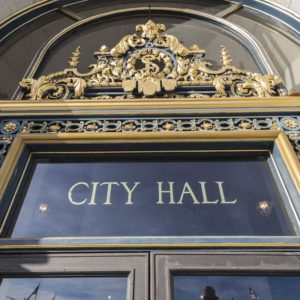Editor’s Note: For another view, please see Counterpoint: Government Makes Problems Worse
This summer, the 50th anniversary of the moon landing had many people thinking about government’s ability to tackle big challenges.
When my kids and I watched the PBS documentary Chasing the Moon, I was amazed at how the Apollo story still captured our imaginations. The moon landing was an inspiring demonstration of what government can achieve when leaders set our collective sights on a big mission and put the resources behind it to unleash the greatest parts of human energy and ingenuity.
Contrast the moon landing with some of the dysfunction we see in government today and it’s fair to ask: Is government still capable of delivering on big missions?
Most Americans don’t think so. In fact, data from the Pew Research Center show that just 17 percent of Americans say they can trust the government in Washington to do what is right “just about always” or “most of the time.” And who can blame them? With plenty of discouraging examples and today’s toxic public discourse, it’s no wonder people lack faith that government can tackle the most basic things, let alone big challenges.
Public trust and government effectiveness go hand in hand. Restoring faith in government, therefore, will require rethinking how governments function and leaders lead. The problem is we’ve been looking for answers in the wrong place.
We’ve focused too much — and placed too much hope — in a top-down, Washington-led approach. By contrast, what we’ve found through our work in more than 50 U.S. cities over the last two years is that local leaders in these “laboratories of democracy” are where solutions are most likely to be found.
This shouldn’t surprise anyone. Local officials better understand resident needs and more often engage directly with residents in the process of governing. Importantly, some are even beginning to foster cultures of learning and experimentation that lead to more-innovative approaches and better results.
Denver’s Peak Academy, for example, trains and empowers city employees at all levels how to eliminate waste, improve services and create a higher standard of government. Peak has achieved savings of more than $36 million in Denver and is now being replicated in many other cities.
Love Your Block programs in cities such as Boston, Phoenix and Lansing, Mich., invite residents and community volunteers to fight blight by working side by side with city officials to remove waste from abandoned lots and clean up graffiti. The programs have not only resulted in cleaner neighborhoods but also stronger relationships between people and government — restoring trust and leading residents to reach out to city officials for help with other needs.
In Oregon, state and local officials have been partnering with university and community leaders to bring people together around “Oregon’s Kitchen Table” — an example of “deliberative democracy” that gives people a direct say in the decision-making process, even on such important matters as the budget.
All of these are examples of the “subsidiarity” principle: the idea that institutions closest to the people, and their problems, are best equipped to solve those problems, from homelessness to education to economic development.
But it’s not just where problem-solving occurs, but how it’s being done differently. In places like Pittsburgh, Louisville, I
This is not to say that the federal government can’t be part of the solution. It is to say that Washington, before it tries to dictate solutions, should look to local communities, where the most effective and legitimate approaches to problem-solving are being developed and tested.
Can Americans trust governments to solve the big problems that matter to them? Absolutely. It’s happening every day in cities from coast to coast.
Looking to America’s cities and towns can reaffirm the positive potential of government — and show us a better way forward.

